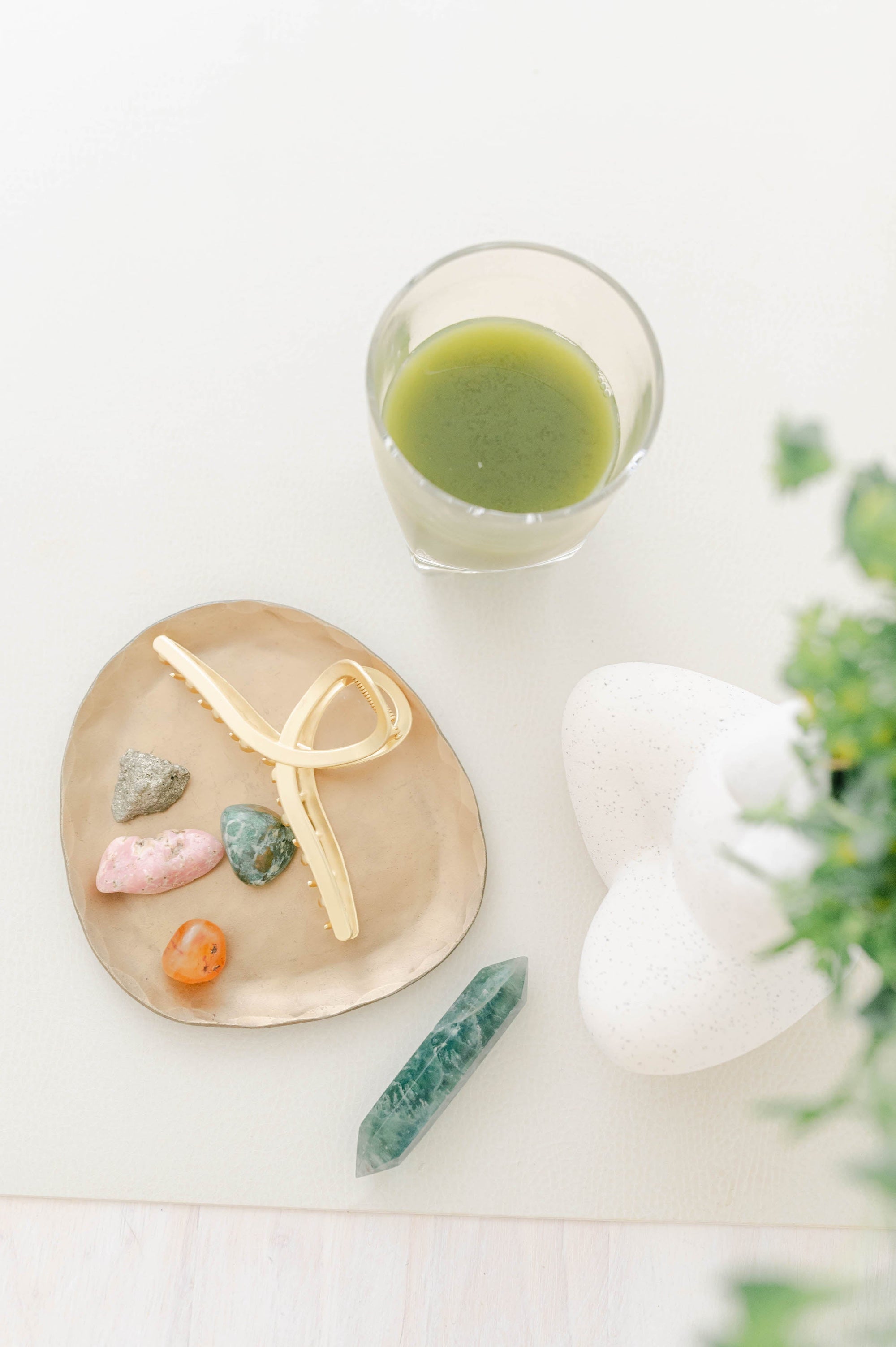The desire to have clear, smooth, youthful, and vibrant skin is the most common concern I hear in my treatment room. The truth is, the health of the skin is a strong indicator of the health of the mind and body. The importance of the skin to one’s overall physical, mental, and emotional health is often overlooked. It’s seen simply as the covering of the vital organs and systems inside, and many people think its care is a luxury, rather than a necessity. This could not be further from the truth.
If you know me, you know I’m pro-aging. Aging healthy is my aim. I’m 46 and thriving. That’s not to say that I don’t have my moments of being hard on myself. I go there sometimes and I’m quick to reframe. What I know for sure is that I would rather focus my time, money and energy on aging well and living vibrantly than working hard trying to reverse the inevitable.
{ps. read to the end to learn about the secret I’ve been keeping}
Caring for the skin is caring for the whole self – mind, body, and spirit.
Our skin is intimately connected to every other organ and system of the body – most notably, the brain/central nervous system, digestion, and detoxification. On the emotional side, the skin is how we present ourselves to the world and is often how the world first perceives us. Its health, and our perception of its appearance, has the ability to deeply affect our self-image, our relationships, and how we show up in our world. Just as our body requires a bio-individual approach to both primary and secondary food for true holistic nourishment, the skin does as well.
There are five key integrative ingredients for healthy, glowing skin:
1| Physically nourish inside and out.
The skin is composed of different proteins that are built from the inside, with whatever nutrients are available. Vitamins such as A, C, E, K, and the B vitamins (primarily biotin and niacinamide) are key building blocks, in addition to the full spectrum of amino acids. Your diet should include vitamin- and antioxidant-rich fruits and vegetables, plus complete proteins, such as pastured meats and eggs. If you don’t eat meat, be sure to combine your plant proteins to ensure you’re getting all your amino acids, as most of them are not stand-alone complete proteins. Topically, choose herbal or plant-based skincare products.
2| Hydrate.
Did you know that the skin only receives about 10% of the water you consume internally? It’s true! The hydration you intake first goes to hydrate your internal vital organs, and by the time it reaches the skin, it’s like two day-old leftovers. So while it is necessary to hydrate from the inside, it is also extremely important to hydrate on the outside using topical products that contain humectant ingredients that bring moisture into the skin, like aloe vera gel, hyaluronic acid and vegetable glycerine. Herbal steams and hydrosols (rose toner) are also great options.
3| Protect and seal in moisture with healthy fats.
Water is important, but it is only useful if it stays in the cells. Water loss, whether trans-cellular (across cells) or trans-epidermal (across the skin), happens when there are not enough lipids present in the cell membranes or on the surface of the skin to prevent the water from seeping out or evaporating. Therefore, we must get enough lipids in our diets and topical skincare regimens to seal in moisture and ensure healthy function. Eat a diet rich in foods that contain essential fatty acids, such as nuts and seeds; dark leafy greens; small fatty fish, like sardines, anchovies, and wild-caught salmon; and pastured beef, chicken, and eggs. Topically, choose products that contain fixed oils – lipids cold-pressed from the nuts or seeds of plants, such as olive oil, argan oil, jojoba oil, or shea butter.
4| Toss the toxins.
Just as processed food that contains health-harming synthetic chemicals should be avoided, the same is true for mass-produced synthetic skincare products. Most conventional skincare products found at drugstores, department stores, and even many spas, contain ingredients that are not compatible with the human body. Many are known to cause irritation and allergic reactions on the outside, and contribute to body burden on the inside. Choose products that are made with as many recognizable plant ingredients as possible and contain no synthetic fragrances. Working with a trusted skincare professional over instagram influencers or celebrity endorsed products is going to be your best strategy. Don’t buy into the hype. I’m telling you (I’ll write another article on the topic), our skin doesn’t need a 10 step regime or $200 cream. It’s a magical organ that knows how to heal itself if you treat it right and support its natural function.
5| Adopt skin-loving practices.
We tend to be rough with our skin when it shows us something we don’t like, even though it’s just doing its job and letting us know that something is out of balance on the inside. Instead of jumping to scrub, zap, burn, or poke blemishes, visible capillaries, or dark spots, show love and gratitude to your skin for being such a loyal messenger. Apply your products gently and lovingly, and be sure to smile at your reflection whenever you catch a glimpse in a mirror or window.
Was this helpful for you? I’m always happy to hear your feedback. If you read to the bottom– thank you for taking the time. I’m happy to share with you that I’m currently working on creating my own skincare line, specifically packed with nutrient-rich oils for collagen support and a deeply hydrated luminous glow so you can age healthy….and, gracefully.
Stay tuned…..it’ll be launched by the end of this year! If there’s anything specific you’ve been looking for and can’t find, let me know so I can work into the ritual. Find me at jennie@jenniefresa.com
Xo, Jennie




Comment
I follow all your instructions with my skin were I fall short is diet but doing better with that can’t wait for your skin care. XO